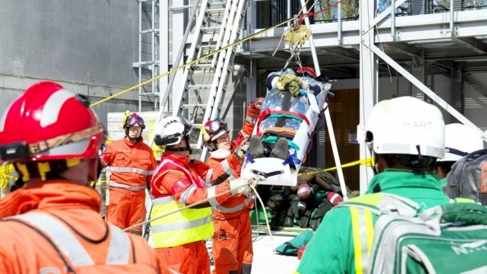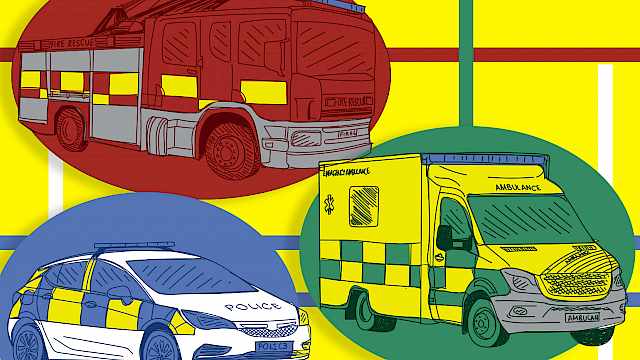Abstract
Team training is essential to support effective teamwork. In the UK Emergency Services, one goal of team training has been to promote greater interoperability between different response agencies. Using a mixed-methods online survey, we evaluated emergency responders’ experiences of interoperability training to identify recommendations for theory and practice. We found that live exercises and in-person training were rated as the most useful for training interoperability.
E-learning was the only type of training where no participants rated it as extremely useful. Qualitatively, participants described five requirements for effective interoperability team training. Specifically, training must be:
- representative and realistic;
- focused on sharing perspectives and developing awareness of capabilities and challenges across teams;
- prioritised as a core part of the day-job for emergency responders;
- face to face rather than remote; and
- a platform for building social relationships.
Taken together, we recommend that future interoperability team training must be regular, interactive, practical, and social, to achieve behaviour change.
Introduction
Teams are essential for achieving goals in complex task environments. Team performance can be improved through team training, whereby participation in activities can build team-level knowledge, skills, and attitudesi. It is important to consider context when developing team trainingii. This is especially important for teams operating in extreme environments, whereby the exceptional contextual factors of the team environment create unique challengesiii. If team training lacks realism and fails to consider the contextual factors that make that team unique, it will not prepare team members to perform under the exceptional extreme conditions that they are about to face.
Over the past 12 years, the Joint Emergency Service Interoperability Programme (JESIP) have sought to promote greater interoperability (i.e., joined up working) between emergency team members through changes to working practices and team training to embed these changes.
The goal of this research was to evaluate the effectiveness of interoperability team training. We adopted a mixed-methods survey design to evaluate the usefulness of interoperability team training and to generate best practice guidelines for informing its future design.
Read more
Braun, V., & Clarke, V. (2019). Reflecting on reflexive thematic analysis. Qualitative Research in Sport, Exercise and Health, 11(4), 589–597. https://doi.org/10.1080/2159676x.2019.1628806
Brown, O., Power, N., & Conchie, S. M. (2020). Immersive simulations with extreme teams. Organizational Psychology Review, 10(3–4), 115–135. https://doi.org/10.1177/2041386620926037
Byrne, D. (2022). A worked example of Braun and Clarke’s approach to reflexive thematic analysis. Quality & Quantity, 56(3), 1391–1412. https://doi.org/10.1007/s11135-021-01182-y
Power, N. (2018). Extreme teams: Toward a greater understanding of multiagency teamwork during major emergencies and disasters. American Psychologist, 73(4), 478–490. https://doi.org/10.1037/amp0000248
Salas, E., DiazGranados, D., Klein, C., Burke, C. S., Stagl, K. C., Goodwin, G. F., & Halpin, S. M. (2008). Does Team Training Improve Team Performance? A Meta-Analysis. Human Factors: The Journal of the Human Factors and Ergonomics Society, 50(6), 903–933. https://doi.org/10.1518/001872008x375009
Copyright Information
As part of CREST’s commitment to open access research, this text is available under a Creative Commons BY-NC-SA 4.0 licence. Please refer to our Copyright page for full details.
IMAGE CREDITS: Copyright ©2024 R. Stevens / CREST (CC BY-SA 4.0)






